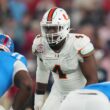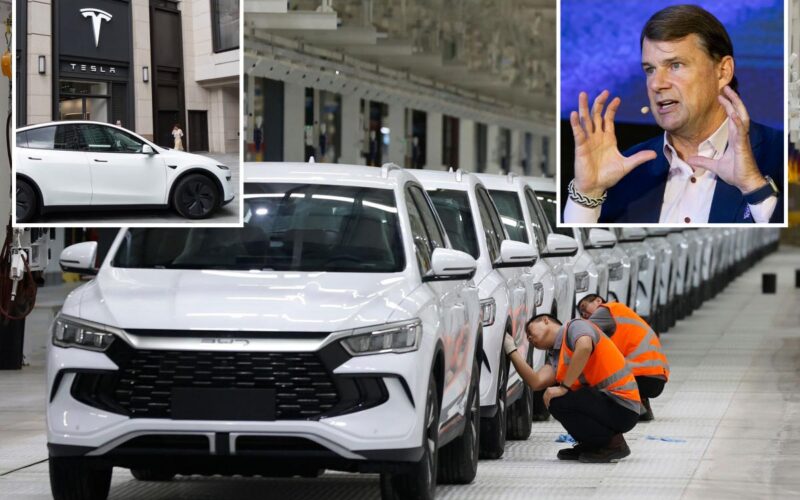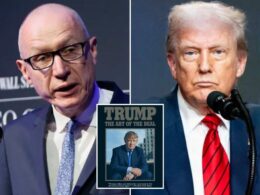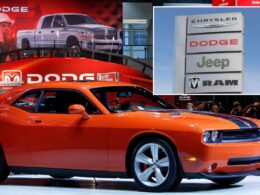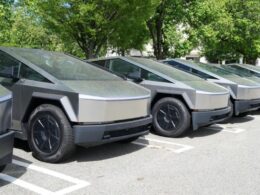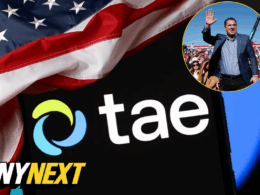Ford CEO Jim Farley said he got so humbled by the competition that he realized he needed to overhaul his company or risk falling behind.
The auto executive admitted on Tuesday that he was “very humbled” when Ford tore apart its first Model 3 and started dismantling Chinese electric vehicles, discovering what he called “shocking” differences that forced the company to completely rethink how it builds cars.
The wake-up call came when Ford engineers compared the Mustang Mach-E — the number two bestselling EV in the country at the time — to Tesla’s Model 3. What they found was brutal, according to the chief executive.
“I was very humbled when we took apart the first Model 3 Tesla and started to take apart the Chinese vehicles. When we took them apart, it was shocking what we found,” Farley told the “Office Hours: Business Edition” podcast on Tuesday.
The Mach-E’s wiring loom — the bundle of electrical wires, connectors and protective coverings that carry power and signals throughout a vehicle — was 1.6 kilometers longer than Tesla’s, Farley told the “Office Hours: Business Edition” podcast on Tuesday.
That extra copper added 70 pounds of dead weight to the Mustang. Since every pound in an EV costs money in battery capacity, that bloated wiring harness was costing Ford an extra $200 per battery just to haul it around, according to Farley.
That’s when he realized that Ford had “even more catchup to do” and that companies using traditional equipment were “really far behind.”
“All the math changes with an EV with that huge expensive battery.”
The eye-opening revelations that resulted from dismantling competitor models were a major driver behind Ford’s decision in 2022 to split the company into Model E — the EV vision — and the Blue and Pro businesses.
Farley believed Ford needed a new division and a new governance structure because the EV business is fundamentally different.
The move has been costly. The Model E division lost more than $5 billion in 2024 and is projected to face a similar hit this year, but Farley said he doesn’t regret it.
“I knew it was going to be brutal business-wise,” he said on the podcast, adding that he thought it was important for Ford’s EV operations to be accountable to investors.
“My ethos is, take on the hardest problems as fast as you can and do it sometimes in public because you’ll solve them quicker that way,” Farley said.
Despite the humbling teardown, Ford remains a major player in the EV race, ranking third in US EV sales through the third quarter of 2025, behind only Tesla and Chevrolet. But the gap is widening, and the competition is fierce.
Farley has warned that American EV makers are lagging behind their Chinese competitors.
Chinese EV makers now account for more than half of all electric vehicles sold globally, and their market share is exploding in Europe, Asia and South America.
In China, the world’s largest car market, the tables have already turned. Last month, Xiaomi delivered nearly 49,000 EVs, crushing Tesla’s 26,000.
It’s not just Xiaomi; other Chinese brands like BYD and XPeng are also rapidly gaining ground, fueled by lower prices, advanced features and over $230 billion in government subsidies since 2009.
Chinese-made EVs are not available to American consumers due to punishing 100% tariffs on those imports.
Last year, the Ford boss said that he had a Chinese-made Xiaomi SU7 EV specially flown to the US for his everyday use — a comment that raised eyebrows given his status as the head of one of Detroit’s legacy automakers.
“I don’t want to give it up,” Farley said at the time.
Jason Isaac, who heads the American Energy Institute, told National Review that Farley’s use of a Chinese EV a “slap in the face to the thousands of hardworking employees at Ford Motor Company.”
Farley defended his actions on X, saying, “I try to drive everything we compete against. Have done it my whole career. Specs can tell part of a story, but you’ve got to get behind the wheel to truly understand and beat the competition.”
The Xiaomi SU7, which retails for $30,000 in China, is unavailable in the US due to a 100% tariff on Chinese-made EVs and incompatibility with US safety and charging standards.
But Farley gushed about the company, calling it an “industry juggernaut” and “the Apple of China.”
